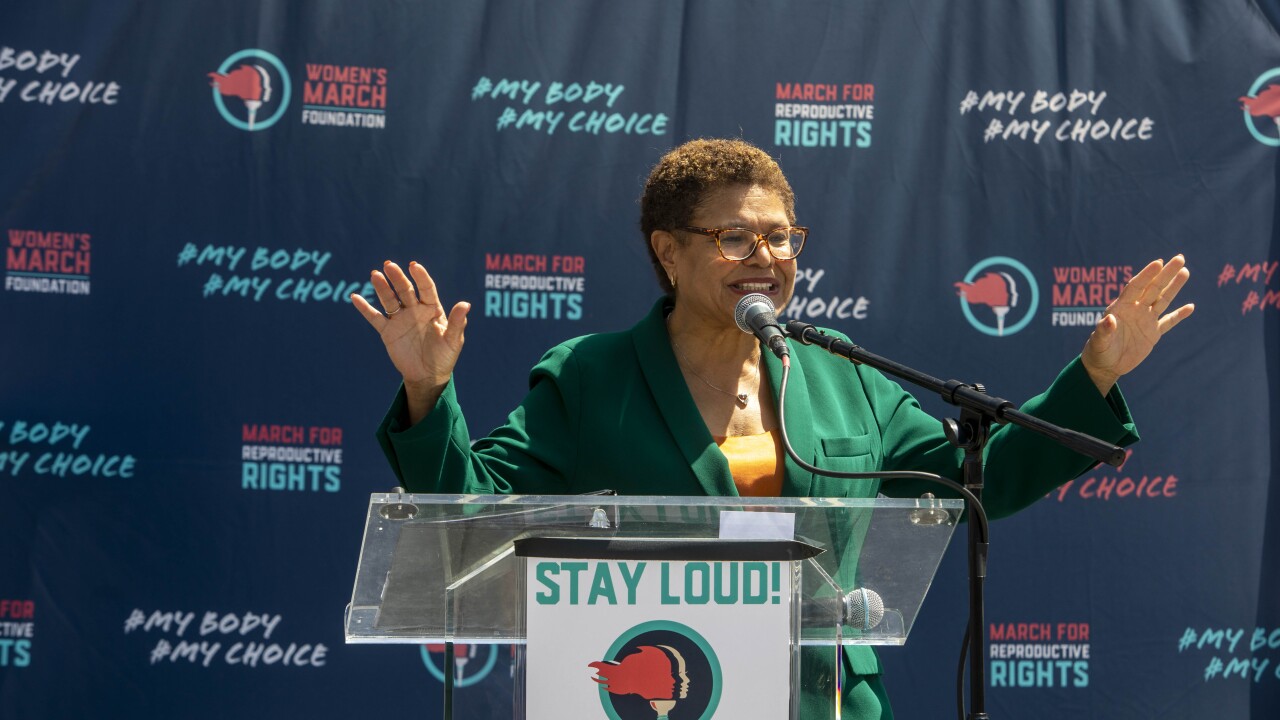CHICAGO – Chicago heads into the market this week with $600 million of revenue bonds backed by water and wastewater systems that carry stronger ratings than its general obligation paper but face similar strains tied to pension funding.
A $400 million second lien wastewater issue is up first Tuesday. About $180 million represents new money that matures in 2052 to pay for projects while $220 million will refund bonds from 2006 and 2008 bonds and matures 2038.
Siebert Cisneros Shank & Co. LLC is the lead manager with TKG & Associates LLC and Swap Financial Group advising the city.

The city will follow Wednesday with a second lien $200 million refunding of 2006 and 2008 water revenue-backed bonds. Cabrera Capital Markets LLC is senior manager with the same firms advising the city.
While the credits are generally considered strong and somewhat isolated from the city’s general obligation pressures, market participants said they will be watching to see if the market imposes additional penalties stemming from the state’s recent downgrades.
Ahead of the sales, Fitch Ratings dropped its ratings on both the water and wastewater second lien bonds by one notch to AA-minus and assigned a negative outlook based on weakening financials.
On both credits, Fitch said its concerned “that the system's growing fixed-cost burden, led by the onset of higher pension-related costs and rising debt service, will weaken the system's currently strong financial profile over time.” Both project declining debt service coverage in the coming years.
Another factor in Fitch’s concerns is the potential impact of a water/sewer surcharge the City Council approved last year as part of Mayor Rahm Emanuel’s overhaul to stave off the threatened insolvency of the city’s municipal employees' pension fund. The city is still awaiting state approval for changes to the laborers’ and municipal employees’ funds.
The utility surcharge, based on consumption, layers on costs to utility customers that do not provide a direct benefit to the utility or its bondholders, Fitch said. The total bill for city residents, while currently affordable, will increase by approximately 32% over the next four years.
“Fitch is concerned the increase in taxes, rates and fees across the entire spectrum of city services, may lead to rate fatigue,” analysts wrote.
The wastewater second lien bonds carry an A rating and stable outlook from S&P Global Ratings and AA-minus with a stable outlook from Kroll Bond Rating Agency. The city has about $1.7 billion of sewer debt, almost all issued under the second lien.
Debt service coverage of 1.84 times is expected this year and it falls to 1.53 times in 2019, nearly bumping up against a 1.5 times requirement.
The wastewater program calls for the replacement or upgrade of 699 miles of sewer line. The wastewater system’s 10 year capital program calls for $1.2 billion in spending through 2021. The system has 490,000 accounts.
Emanuel won phased in, double-digit water and sewer rate increases to accelerate capital spending soon after taking office in 2011 and since 2016 rate hikes are tied to the consumer price index. Rates will rise 1.83% this year and 1.5% next year.
The city stresses in the presentation that is has shown a “willingness to raise rates to fund necessary improvements and we have a very high collection rate” as it can discontinue water service and place liens.
The credit profile benefits from strong enterprise systems, affordable rates, strong financial performance and capital planning, but face strains posed by the city’s overall fiscal pressures.
Deputy chief financial officer Kelly Flannery stresses in the investor presentation that system revenues are legally required to be used for sewer system purposes.
“Nevertheless, it is unclear how current or future management might interpret this restriction if the general city operations enter a period of prolonged and significant financial stress,” S&P wrote.
The city is dipping into the water/sewer system revenues as permitted to help cover rising pension payments for employees working in those systems and the city has yet to identify future additional revenue sources to cover a big jump in payments expected in 2023.
The water bonds carry an A rating and stable outlook from S&P and are rated AA with a stable outlook from Kroll. The city has $2.47 billion of water backed bonds almost all issued under the second lien. Coverage of 2.19 times is expected this year but falls to 1.81 times in 2019, compared to a 1.10 times requirement.
The city’s 10-year water infrastructure program calls for spending $2 billion through 2021 to upgrade 880 miles of 100-year-old water mains, install meters, and upgrade steam powered pumping stations and two water treatment facilities.
The city delivers treated water to an 800-square-mile region that includes 125 suburban communities serving a population of 5.3 million. Rates will rise 1.83% this year.
“Approved rate increases and expense control, both for operating and capital expenses, should help support the rating at its current level,” S&P said of the water credit.
Moody’s Investors Service was not asked to rate the upcoming issues. It assigns ratings in the Baa category to past issues it had rated.
The city is expected to return to the market in early summer with a new money and refunding issuance of O'Hare International Airport revenue bonds.





